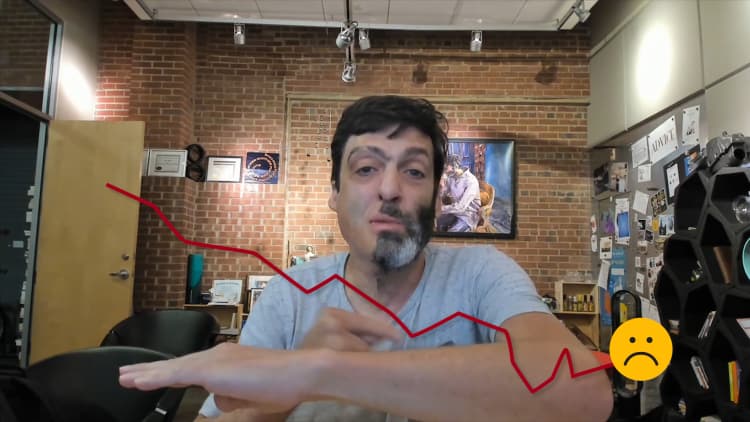Bank shares plunged Monday as collapsing oil prices and bond yields sparked worry that the widening impact of the coronavirus outbreak could cause a recession.
JPMorgan Chase, the biggest U.S. bank, fell about 14%, its worst decline since March 2009, when the industry was still in the throes of the financial crisis. Bank of America, the second largest U.S lender, declined 15%, and Citigroup plunged 16%.
"Bank investors are starting to price in the possibility of a recession," Charlie Peabody, an analyst at Portales Partners, said in a phone interview. "We're back to where these stocks traded in December of 2018. Back then, if you remember, there were fears of the system shutting down and moving to a recession."
Bank stocks, which are tethered to expectations for interest rates and loan losses, are sometimes considered an early indicator for the broader markets and economy. Last week, the Federal Reserve unexpectedly cut its benchmark rate by 50 basis points, and DoubleLine Capital CEO Jeffrey Gundlach said short-term rates are headed to zero.
Falling rates tend to hurt banks because they pressure the spread between what lenders pay out to depositors and what they collect from borrowers. Since most large banks don't pay an awful lot of interest to depositors to begin with, the drop in loan yields means a key driver of the industry's profits will shrink, according to Peabody.
"Your spreads in the consumer-lending business will get crushed," he said. "That is the big driver of net income."
That has resulted in the best-performing U.S. banks since the crisis — lenders with large deposit-gathering operations — selling off the worst on Monday, led by JPMorgan and Bank of America. Goldman Sachs was down 10% and Morgan Stanley fell 10%.
The collapse in oil prices on Monday is not enough, on its own, to explain the decline in bank shares, Peabody said.
The oil and gas industry accounts for about 2% of total loan books at six of the largest banks, Goldman Sachs said Monday in a research note. The risk to short-term earnings is a 3% to 6% decline as banks add to reserves for loan losses, Goldman said.
Energy "is not going to break the bank," Peabody said. "It's that a recession will bring a lot of other points of stress besides energy, like leveraged loans" and rising consumer and corporate loan defaults, he said.



